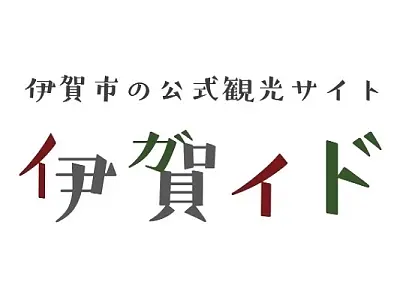What is Akafukumochi 's limited edition mochi "Tsuitachi-Mochi"? We will introduce how to purchase/reserve and monthly mochi!
掲載日:2024.06.21
We will introduce how to purchase and reserve `` Tsuitachi-Mochi'', which is sold only on the first day of every month at Akafukumochi, a classic souvenir from Mie Prefecture, the types of Tsuitachi-Mochi, and the popular Tsuitachi-Mochi.
Article production / Tourism Mie Editorial Department

▼Table of contents
- What is “Tsuitachi-Mochi”?
- Where to buy “Tsuitachi-Mochi” and how to make a reservation
- If you want to taste it at the store, go to Akafukumochi store on the day of sale!
- If you want to take it home, you will need a numbered ticket, which starts being distributed at 5pm the day before!
- If you can't go to Akafukumochi store to buy on the day, you can also make a reservation!
- You can also reserve and purchase at department stores!
- Introducing Tsuitachi-Mochi all at once!
- What is the popularity ranking of Tsuitachi-Mochi?
What is “Tsuitachi-Mochi”?
Limited edition mochi sweets sold only on the 1st of every month.

In Ise, there is a custom called Tsukitachi Mairi, where people visit IseJingu on the first day of every month.
This is a way to express gratitude for getting up early at the beginning of the month, and praying for a safe month ahead.
In 1978 (Showa 53), Akafukumochi released ``Tsutsutachi Tsuitachi-Mochi' (rice cakes) on the first day of every month, excluding New Year's Day, in order to treat visitors to the first day of the month with mochi sweets related to the season. Monthly mochi sweets are sold only at the festival, so it is very crowded from early morning.
By the way, the reason why there are no sales on New Year's Day is because they want people to enjoy Akafukumochi Mochi at the beginning of the year.
Where to buy “Tsuitachi-Mochi” and how to make a reservation
If you want to taste it at the store, go to Akafukumochi store!

I want to try it at the store! If so, please go to Akafukumochi store on the day of sale, which is located in front of the entrance of Okage Okage-yokocho in the middle of Oharai-Machi, a 5-minute walk from UjibashiBridge in the inner Naiku of IseJingu Shrine. As soon as the store opens at 4:45, you will be guided in the order of arrival.
By the way, don't you need a numbered ticket to buy Tsuitachi-Mochi? You may think so, but if you just eat at a restaurant, you don't need a numbered ticket!
*Available ends once sold out.
*If you wish to take it home as a souvenir, you will need the numbered ticket listed below.
If you want to take it home, you will need a numbered ticket!
If you would like to purchase something to take home at Akafukumochi Store on the day of the sale, please get a "numbered ticket (timed ticket)" that will be distributed from 17:00 the day before in front of Akafukumochi Main Store!
This numbered ticket only informs you of the time when you can make a purchase, and is not a purchase exchange ticket. Therefore, even if you have a numbered ticket, please be aware that once the product runs out, the sale will end.

By the way, the store will open from 4:45 on that day, but as long as you go to Akafukumochi main store at the designated time on your numbered ticket, you'll be fine!
If you can't go to Akafukumochi store to buy on the day, you can also make a reservation!
Did you know? If you can't make it to Akafukumochi main store early on the day of the event, you can make reservations by calling Tsuitachi-Mochi reservation phone or online (online reservations can only be made by credit card and advance registration is required).
As for how to make a reservation, you can make a reservation from the 10th of the month before the sales month, and you can specify the pick-up time between 9 a.m. and 3 p.m. when making the reservation.
Once you have made a reservation, you will receive an exchange ticket (information letter) by mail the next day, so please bring the exchange ticket and payment with you on the day of your appointment at the designated time.
Please note that the place where you can purchase Akafukumochi main store, but at the following Tsuitachi-Mochi pre-order locations!
[Tsuitachi-Mochi reservation site] Please see here
[Tsuitachi-Mochi reservation phone number] 0596-22-2200 (8:00-17:00)
[Purchase location for Tsuitachi-Mochi reservation] 225-55 Nakamuracho IseCity
*The production quantity is limited, and reservations will end when the planned quantity is reached.
*A map of the reservation purchase location is also indicated on the exchange ticket.
You can also reserve and purchase at department stores!
In fact, you can make reservations at the Kintetsu Department Store Yokkaichi store, Akafukumochi directly managed stores in department stores in Nagoya, Kyoto, Osaka, and Hyogo!
Reservations will be accepted at stores from the 1st of the month preceding the sales month. A voucher will be issued at the time of reservation, so on the day of sale, you can purchase Tsuitachi-Mochi in exchange for the voucher and the price.
Pick-up time starts at 11:00, and the pick-up end time varies depending on the store. By the way, only February's "Risshun Daikichi Mochi" will be accepted from December 1st of the previous month.
Some stores allow online reservations, which saves you the hassle of going to the store to make a reservation, so please give it a try.
Stores available
・Kintetsu Department Store Yokkaichi Store [Mie Prefecture/ YokkaichiCity]
・EXPASA Gozaisho Up Line Akafukumochi Chaya [Mie Prefecture/ YokkaichiCity]
・JR Nagoya Takashimaya store [Aichi Prefecture/Nagoya City] [Web reservations available]
・Matsuzakaya Nagoya store [Aichi Prefecture/Nagoya City] [Web reservations available]
・Nagoya Mitsukoshi Sakae store [Aichi Prefecture/Nagoya City]
・Meitetsu Department Store Main Store [Aichi Prefecture/Nagoya City]
・JR Kyoto Isetan [Kyoto Prefecture/Kyoto City] [Web reservations available]
・Kintetsu Abeno Harukas store [Osaka Prefecture/Osaka City]
・Takashimaya Osaka store [Osaka Prefecture/Osaka City]
・Hankyu Umeda Main Store [Osaka Prefecture/Osaka City] [Web reservations available]
・Hanshin Umeda Main Store [Osaka Prefecture/Osaka City] [Web reservations available]
・ kambe Hankyu Store [Hyogo Prefecture/ kambe City] [Web reservations available]
Next up, we're going to introduce you to Tsuitachi-Mochi of each month, which can only be eaten once a year.
Introducing “Tsuitachi-Mochi” all at once!
February “Daikichi Mochi”
Bean Daifuku to ward off evil spirits throughout the year
``Risshun'' (February 4th) is the ``New Year's Day'' of the 24 solar terms.
On New Year's Eve, the day before, it is customary to throw beans and eat black beans to ward off the evil spirits of the past year and to spend the new year in good health.This is known as Setsubun.

February's Tsuitachi-Mochi is "Risshun Daikichi Mochi," which is two types of bean daifuku made with black soybeans and soybeans.
One is a mochi dough wrapped in large black soybeans and crushed bean paste, and the other is a mochi dough wrapped in strained bean paste and soybeans and sprinkled with soybean flour. Enjoy the texture of rice cake and beans!
March “Mugwort Mochi”
Enjoy the color and scent of mugwort during the Kamishi Festival
Since ancient times, mugwort has been called a ``weed to ward off evil spirits'' and has been eaten for a long time.
The reason mugwort mochi was offered to the Hina dolls on March 3rd was to pray for the prosperity and good health of their descendants by making mugwort mochi, which has a rich aroma and strong fertility.

March's Tsuitachi-Mochi is called ``Mugwort mochi,'' which is made by wrapping sticky bean paste in mochi dough that retains the color and aroma of mugwort.
This mochi sweet is associated with the Joshi Festival (Peach Festival), which prays for the healthy growth of girls!
April “Sakura Mochi”
A hint of spring, a faint cherry blossom color
April is the season of cherry blossoms, the queen of hundreds of flowers. Among the sweets associated with cherry blossoms, Sakura Mochi is a simple and popular one!

April's Tsuitachi-Mochi is ``Sakura Mochi'', which is sticky rice dyed a faint cherry blossom color and wrapped in strained bean paste.
It's wrapped in carefully selected cherry blossom leaves, so enjoy it with the cherry blossom leaves!
May “Kashiwa Mochi”
Kashiwa mochi praying for the prosperity of children and grandchildren
May is fresh green. Kashiwa mochi is an essential part of Boy's Festival, which celebrates children's growth.
Oak leaves do not wither and fall until new leaves grow and are replaced. In addition, the shape of the leaves resembles the kashiwa hand that is struck during shrine visits, so it is said to be auspicious for praying for the prosperity of one's children and grandchildren.

Tsuitachi-Mochi in May is ``Kashiwa Mochi'', which is a rice cake filled with strained bean paste and wrapped in oak leaves.
Enjoy it with the soft scent of oak leaves!
June “Mugi Temochi”
Barley hand mochi to thank for a bumper harvest in autumn
June is also called ``Wheat Autumn'' because it is the season for harvesting wheat.
For farmers, wheat is a valuable grain that can be harvested before the storm and flood season, and ``mugi-temochi'' was made by those who finished the busy season of rice planting and wheat harvesting to celebrate a bountiful harvest.

June's Tsuitachi-Mochi is called ``mugite mochi'' and has a long history as a seasonal sweet.
You can enjoy the aroma of barley with this simple mochi, which is made by wrapping brown sugar-flavored bean paste in mochi dough containing glutinous wheat flour and sprinkling fragrant wheat flour on top!
July “Sasa Warabi Mochi”
Refreshing cooling taste wrapped in bamboo leaves
July, Tanabata, bamboo decoration.
It is said that the straight growth of bamboo and its refreshing scent have divine power.

It is warabi mochi filled with strained bean paste and wrapped in bamboo leaves in honor of Tanabata.
Serve well chilled.
August “Hassaku Awamochi”
Pray for fertility: Enjoy the customs of Hassaku Sangu Shrine
``Hassaku'' refers to the first day of the eighth month in the lunar calendar. And since ancient times, it has been a custom to celebrate by giving gifts of new grain.
Because rice was celebrated and people asked for favors, it is also called ``Tanomono Festival'' and is said to be the beginning of today's midsummer gifts.
In ancient times, in Ise, among the five grains, the first fruits of rice and millet were offered before the shrine to pray for a rich harvest.
In addition, August 1st is especially called ``Hassaku Sangu'' during the ``Sakubi Shrine'', and there are many worshipers who eat Awamochi (Awamochi).Hassaku Awamochi (Awamochi) is made every year by inheriting this custom. .

Tsuitachi-Mochi Awamochi, a rice cake made on the first day of August, is made by leaving the grains intact and topped with traditional brown sugar-flavored bean paste.
Enjoy the graininess of millet and the flavor of brown sugar!
September “Hagi no Mochi”
A familiar ohagi that celebrates the joy of harvest
Minori's autumn. Ancient people celebrated the joy of harvest by making Ohagi.
The clover, one of the seven autumn herbs, has a grass crown with the word "autumn" written on it, and has been a familiar flower since ancient times.
Ohagi originates from the color and shape of the crushed red bean paste that resembles the blooming Japanese bush clover.

September's Tsuitachi-Mochi is ``Hagi no Mochi'' and is a well-known seasonal confectionery.
``Hagi no Mochi'' has a slightly salty taste and goes well with warm tea.
October “Chestnut Mochi”
Chrysanthemum Festival
Today's October, September 9th according to the lunar calendar, is the Chrysanthemum Festival, the most important of the five festivals.
On this day, people drank sake topped with chrysanthemums, ate chestnut rice and chestnut sweets, celebrated the festival, and prayed for eternal youth and longevity.

Following this custom, October's Tsuitachi-Mochi is called ``Kurimochi.''
The dough retains the texture of glutinous rice, wrapped in flavorful chestnut bean paste, and topped with candied chestnuts.
Enjoy autumn with the taste and aroma of carefully selected chestnuts!
November “Ebisu Mochi” (Ebisu Mochi)
A hammer that prays for business prosperity
November is the month of the Ebisuko festival, which celebrates prosperous business, and is an important month for merchants (Akindo).

Therefore, Tsuitachi-Mochi in November is ``Ebisu Mochi'', named after Ebisu, the god of commerce.
The mochi, shaped like a hammer, has a brown sugar flavor in both the filling and the dough, while the mochi, shaped like a golden oval, has a refreshing yuzu flavor.
December “Snowcake”
heavy snow snow cover
According to the calendar, December is a season of heavy snowfall, and the winter shogun has arrived even in the warm Iseji area, making it bitterly cold.

December's Tsuitachi-Mochi is called ``Yukimochi'', which is a nod to this season.
This mochi is made by wrapping strained bean paste in mochi dough containing sorghum flour and sprinkling it with mochi flour, making it look like the earth with a light snow coating.
What is the popularity ranking of Tsuitachi-Mochi?
Each person has their own taste preferences, and all Tsuitachi-Mochi are sold out every month, so I think all of them can be said to be popular. The two that are said to be generally popular are August's ``Hassaku Awamochi'' and October's ``Kurimochi''.
Each Tsuitachi-Mochi has a story unique to that month, so we recommend enjoying them as the seasons change.
What did you think?
We introduced "Tsuitachi-Mochi", which can only be purchased once a year on the first day of each month, and because it changes every month, how to purchase and reserve it, and the popular Tsuitachi-Mochi.
Please try them all and find your favorite Tsuitachi-Mochi!
Nearby spots
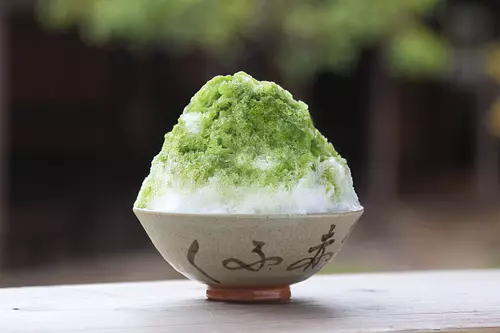
直線距離:7m
AkafukuIce
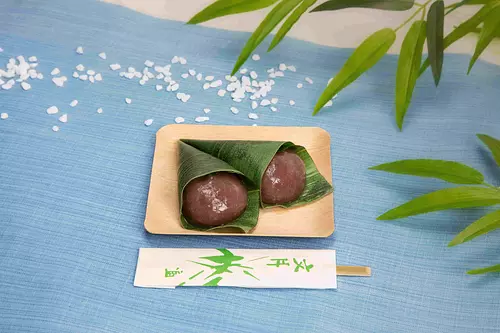
直線距離:7m
Tsuitachi-Mochi
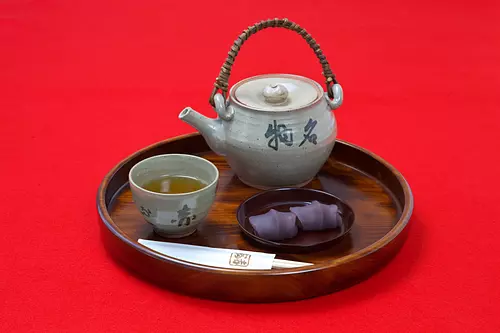
直線距離:7m
Akafukumochi
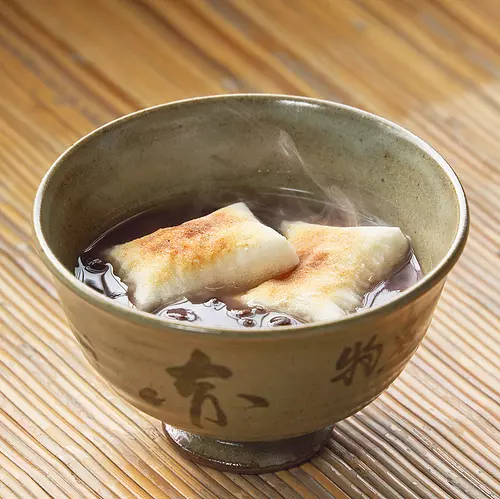
直線距離:20m
Akafukumochi Zenzai
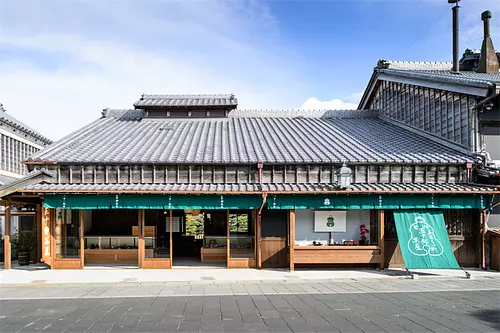
直線距離:23m
Isuzu Chaya Main Store
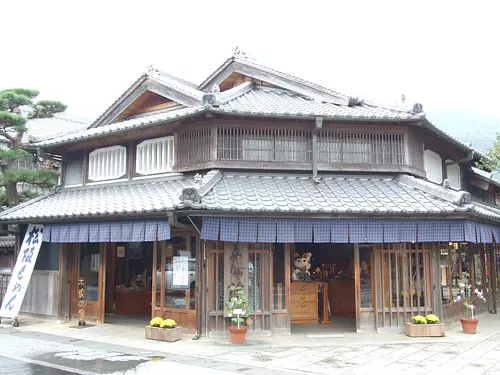
直線距離:25m
Matsusaka cotton specialty store “MomenyaAi”
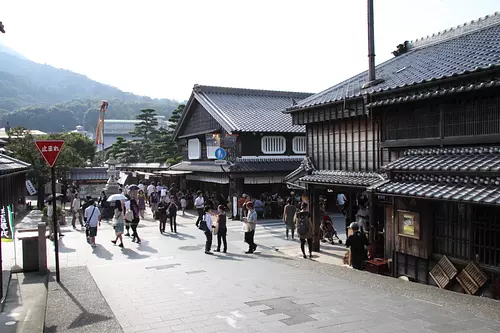
直線距離:38m
Oharai-Machi
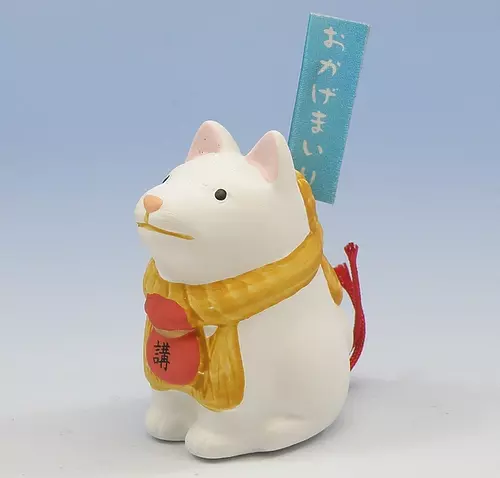
直線距離:39m
Okage-yokocho a souvenir shop unique to Okage Yokocho
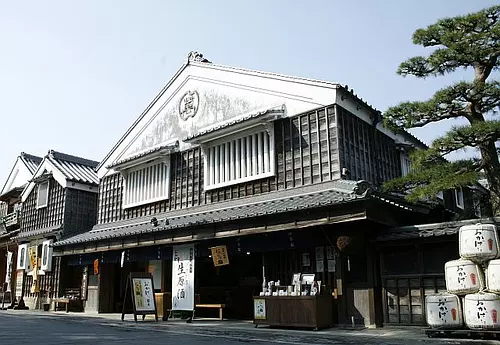
直線距離:43m
Small sake brewery “Naiku Brewery”
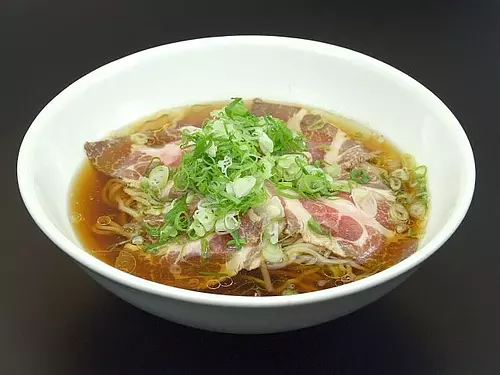
直線距離:46m
``Yokocho YokochosobaShoseiko'' is particular about the noodles, soup, and ingredients.
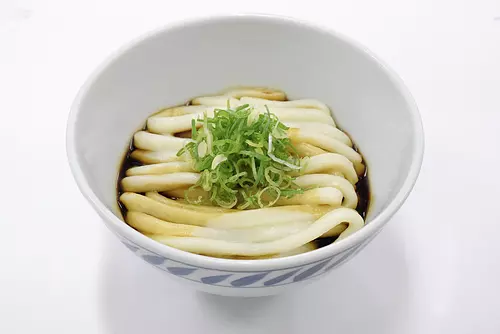
直線距離:47m
Eat at Manpuku's Ise-Udon "Fukusuke"
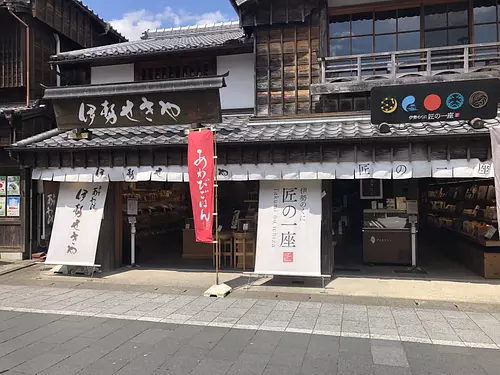
直線距離:48m
Ise Sekiya Naiku store / Ise no Kuni Takumi no Naiku store
nearby events
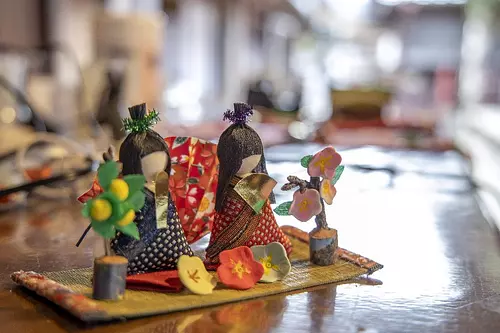
Date: Saturday, February 22, 2025 to Monday, March 3, 2025
直線距離:64m
Okage-yokocho Hinamatsuri
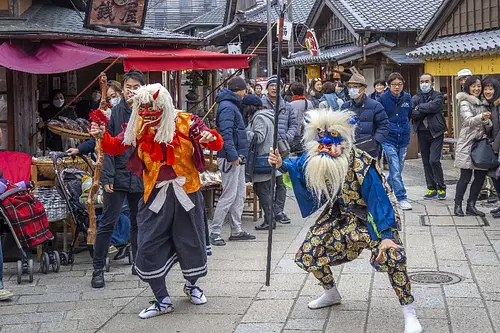
Date: Saturday, January 25, 2025 - Sunday, February 2, 2025
直線距離:64m
Okage-yokocho Market
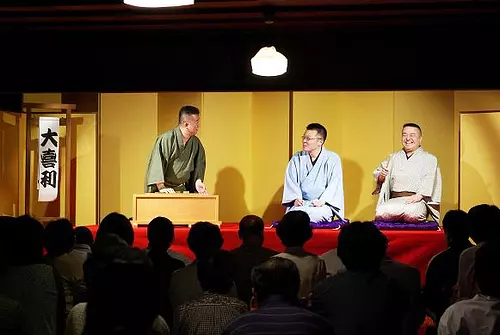
Date: Friday, February 28th every year
直線距離:64m
February Misoka Vaudeville
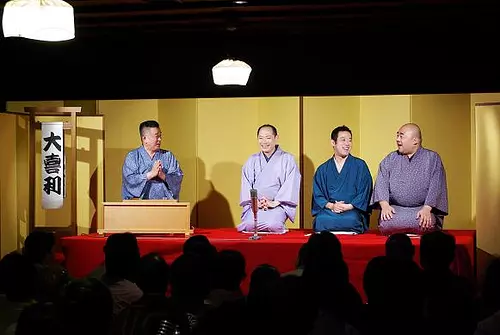
Date: November 30th every year
直線距離:64m
November Misoka Vaudeville
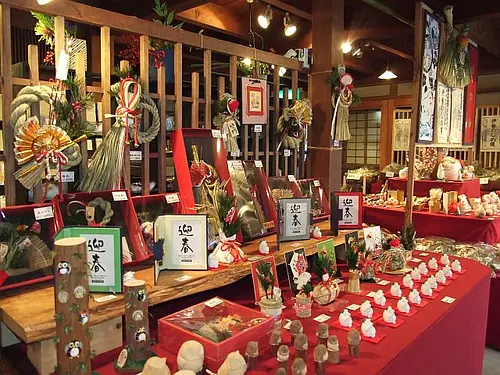
Date: Saturday, December 7, 2024 to Wednesday, December 25, 2024
直線距離:64m
New Year's preparation market

Date: December 1st every year
直線距離:64m
December Yokocho Sakubi Morning Market
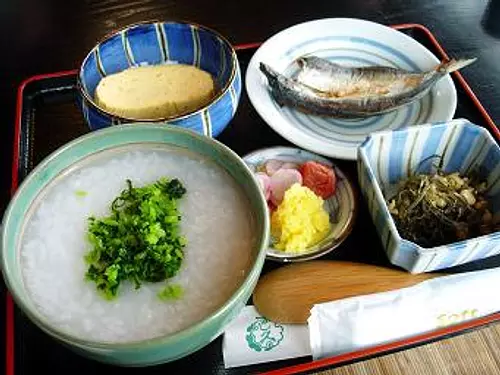
Date: February 1st every year
直線距離:64m
Sushihisa “Asakuma small side porridge”
Dates: January 1st (Wednesday, National Holiday), 11th (Saturday), 13th (Monday) 2025...
直線距離:64m
New Year's local performing arts
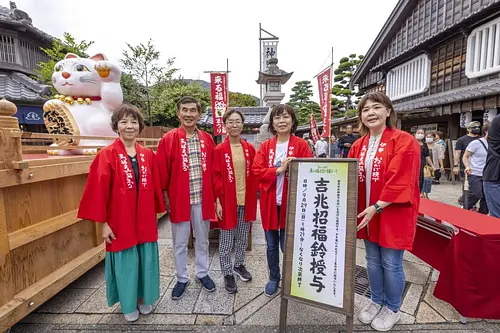
Date: Tuesday, December 31, 2024 - Tuesday, December 30, 2025
直線距離:64m
Announcement of "Recruiting applicants born in the year of the snake"
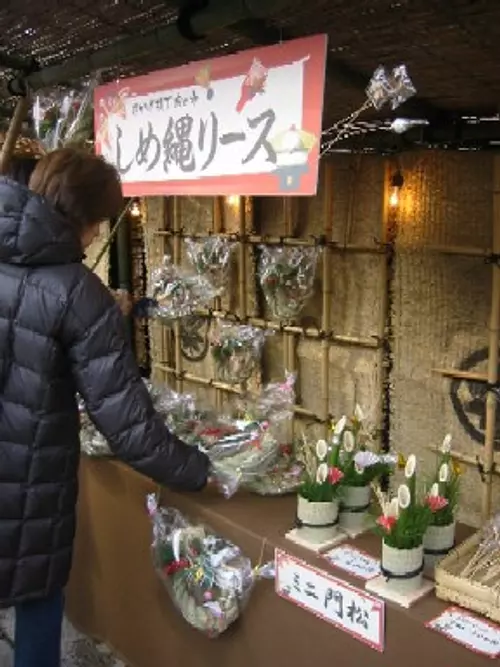
Date: Saturday, December 14, 2024 to Saturday, December 28, 2024
直線距離:64m
Okage-yokocho Old Market

Date: January 7th every year
直線距離:64m
Sushihisa "Nanakusa porridge"
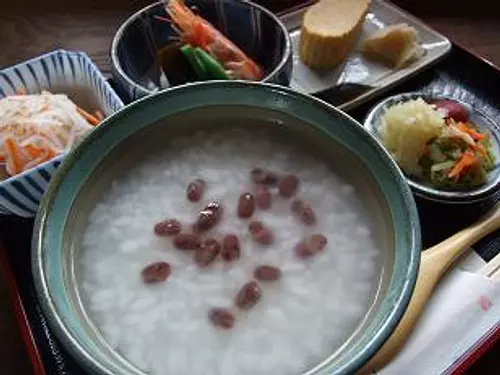
Date: January 1st every year
直線距離:64m
Sushihisa “New Year Morning Porridge”
Plays and experiences nearby
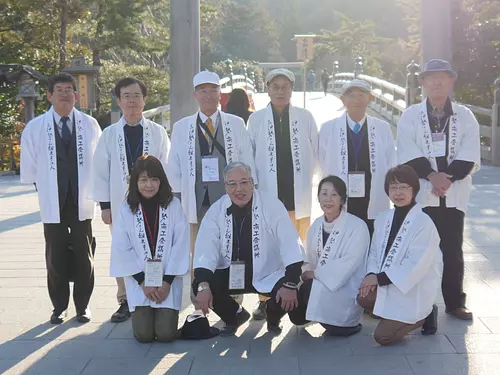
直線距離:345m
Oise-san tourist information
直線距離:348m
Ise Petitabi Tabizou Ise Office Co., Ltd.
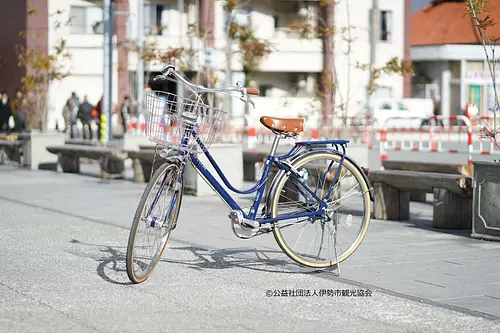
直線距離:3.2km
IseCity Bicycle Rental (Geku Tourist Service Center)

直線距離:3.4km
Same-day delivery service to your accommodation
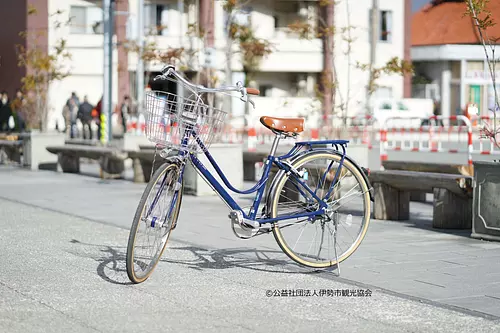
直線距離:3.4km
IseCity Bicycle Rental (IseCity Station Baggage Storage)
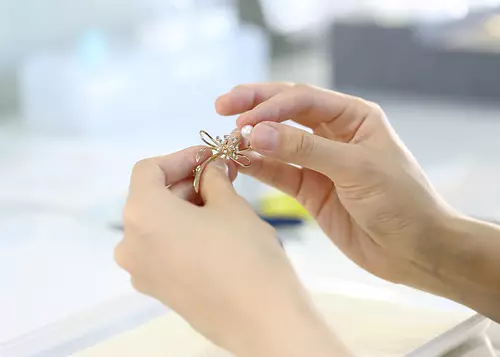
直線距離:4.7km
[Only one in the world] Making original accessories using Akoya pearls
![[Only one in the world] Making original accessories using freshwater pearls](https://www.kankomie.or.jp/rails/active_storage/representations/proxy/eyJfcmFpbHMiOnsibWVzc2FnZSI6IkJBaHBBNWpLQWc9PSIsImV4cCI6bnVsbCwicHVyIjoiYmxvYl9pZCJ9fQ==--dbf2e6b0f422d40e38d57504e978bf08cec1204e/eyJfcmFpbHMiOnsibWVzc2FnZSI6IkJBaDdCem9MWm05eWJXRjBPZ2wzWldKd09oSnlaWE5wZW1WZmRHOWZabWwwV3dkcEF2UUJNQT09IiwiZXhwIjpudWxsLCJwdXIiOiJ2YXJpYXRpb24ifX0=--8d6bc4b517fae43c9e30c66a38f93836dd92b535/20211211_023351634_iOS.jpg)
直線距離:4.7km
[Only one in the world] Making original accessories using freshwater pearls
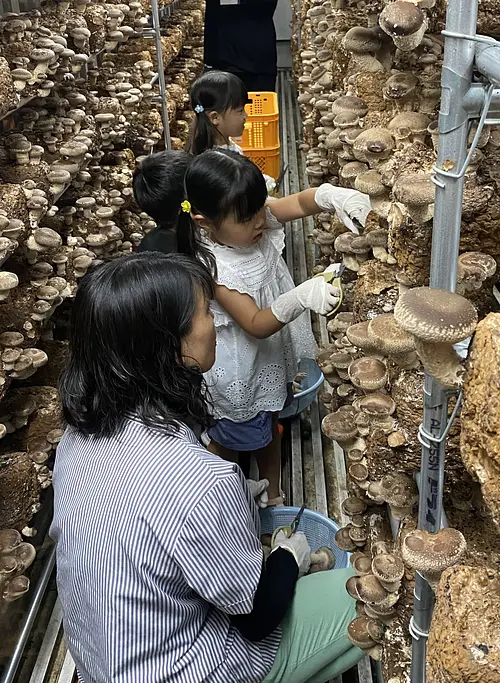
直線距離:5.3km
Mushroom picking

直線距離:6.3km
Real RPG Great Ninja War ~Frog, Snake, and Traveler~
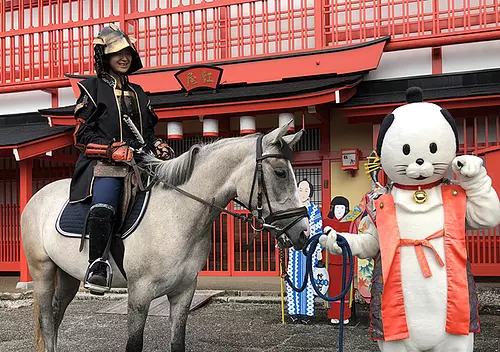
直線距離:6.3km
Exciting horse experience (NinjaKingdomIse)
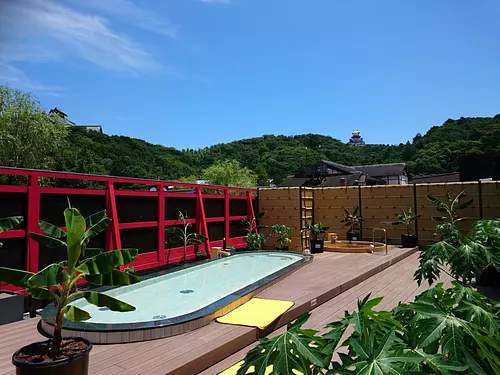
直線距離:6.4km
``Azuchi Castle Hot Spring'' heals the fatigue of sightseeing in Ise
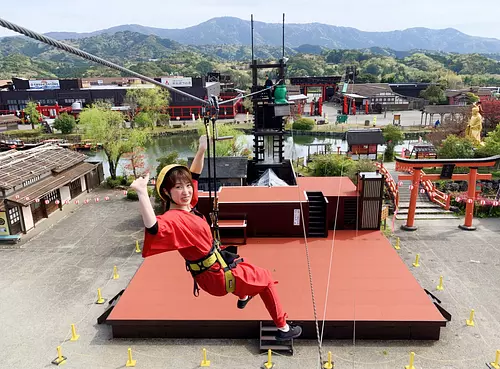
直線距離:6.4km
Ninja Forest Adventure: The largest in Western Japan! Total length 1,000m! 67 attractions
| Category | |
|---|---|
| season | |
| area |


